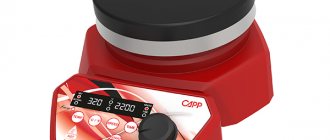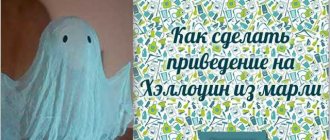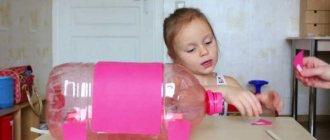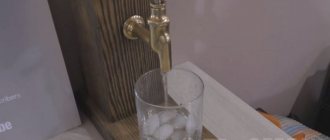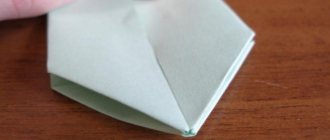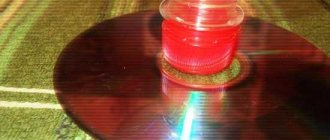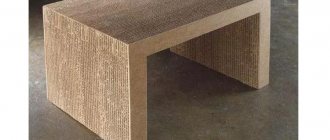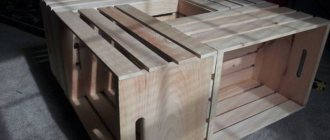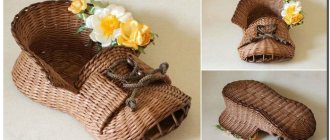Large white boards for drawing with markers are very convenient to use. They are ideal for children at the stage of learning to read, helping to “set” their hand, learn to write and draw. In practice, they are used to create flowcharts, conduct lectures and teach. However, the cost of such boards is quite high and starts from 1,500 rubles. Therefore, many people have a question: is it possible to make a magnetic marker board with your own hands?
General principles for creating a do-it-yourself drawing board
For many craftsmen, it is enough to familiarize themselves with the known technological fundamentals of creating a product, and they create the specific design of a magnetic marker board with their own hands. Let's consider the main points of manufacturing the product:
- The dimensions of a magnetic marker board for home use usually do not exceed 0.6x1.2 m, standard options are 0.3x0.4 m and 0.5x0.7 m. Office designs are twice as large.
- Any sheet material is suitable as a base: plywood, chipboard, fiberboard, MDF, OSB, thin metal, plastic, etc. In the simplest case, you can use part of a wall or the surface of a refrigerator as a base.
- To create a magnetic board you will need a sheet of thin galvanized or painted metal. It is possible to use a special magnetic coating applied, for example, to plywood. In this case, a magnetic primer is first applied, and chalk paint is applied on top of it. To do without primer, special magnetic chalk paint is used. The cost of 0.5 liters of Tikkurila Magnetic brand composition is several thousand rubles, while magnetic soil is three times cheaper.
- If you only need to draw on the board and do not need magnetic properties, you need slate paint. It can be purchased both imported and domestically produced. At the same time, the price forces you to make the composition yourself from black acrylic paint, adding baby powder or grout for tile joints. The quality of the coating suffers somewhat, but the result is a completely acceptable surface for home use.
- The base of the slate board for drawing with chalk can also be covered with a special black chalk self-adhesive film. It is not difficult to glue it, and the coating is inexpensive. The only possible problem is purchasing the right amount of material, and not a whole roll. To draw with a marker, use a special white self-adhesive film. It is better not to use regular self-adhesive tape, as the marker is difficult to erase from it.
- Structurally, a magnetic chalk board can be tabletop, on the wall or placed on the floor. If you coat the two halves of the board with different compounds, you can draw on it with both a marker and chalk. When using a base made of cork or chipboard, you can also use buttons.
- A wooden frame of the required size can be ordered from a framing workshop. It's even easier to purchase a suitable picture frame from a craft store. It is convenient to cover the perimeter of a homemade board with a plastic corner. It is not difficult to cut a frame from a regular wooden plinth if you have a miter box.
Master class 3. Magnets from tin caps (crown caps)
The idea of recycling soda or beer bottle caps as refrigerator magnets will appeal not only to environmentalists, but also to decorators. After all, they cost nothing at all, but provide a lot of opportunities for decoration.
So, for example, you can paste family photos or just nice paper (card scraps, magazine clippings, etc.) inside the lids.
Homemade photo frame magnets
You can paint the lids, fill the insides with hot glue or cork, and then glue magnets to them.
Sometimes bottle caps don’t need to be decorated at all.
Instead of beer caps, you can use larger caps, such as Nutella jars or baby food caps, to make refrigerator magnets.
Materials and tools:
- Scissors, or better yet, a hole punch for scrapbooking for cutting out circles with a diameter of 2.5 cm (sold in craft stores and costs 200-300 rubles);
- Epoxy resin, a container for preparing the solution and a stirring stick;
- PVA glue, as well as superglue;
- Small magnets;
- Photos that are suitable in size or any other pictures, for example, from a magazine;
- Beer caps (it's best to use bottles with screw caps rather than pop caps).
Instructions:
- Using a hole punch or scissors, cut round fragments with a diameter of 2.5 cm from the photographs. Of course, if you use scissors, you must first make a marking using one of the caps (or a plastic cap from a plastic bottle) as a template.
- Glue the pictures to the inside of each lid using PVA glue (the glue must be applied on top of the picture as well). Let the glue dry completely (!).
- Following the manufacturer's instructions, prepare the epoxy resin in the quantity you need. To find out exactly how much resin you will need, pour water into one of the lids, then multiply the resulting volume by the number of lids. Line your work surface to protect it from spills, then fill each lid to the brim. Let the crafts dry overnight.
- Glue magnets to the blanks. Ready!
See also: Crafts from bottle caps for adults and children
Metal mesh board
•Choose a metal mesh with a suitable mesh size. It is best to use reinforcing mesh for the screed with 10x10 cm cells. Give it the desired size and cut off the protruding rods with a grinder or circular saw.
•Degrease the mesh with solvent and coat with paint.
•Screw two self-tapping screws into the wall and hang the product on them. Sheets with notes can be attached to the rods using ordinary clothespins.
Advice! Screed meshes have a large area. From one such structure you can make several boards at once. Spray paint will help save time. Place the grids on top of each other, moving one of them slightly relative to the other, and paint them at the same time. Pre-spread plastic to protect surrounding surfaces and wear a respirator.
Homemade marker board for 300 rubles
For those who like to make things with their own hands, it will be useful to have a marker board. It’s convenient to draw all sorts of diagrams, think, and so on. Today we will look at an example of how, with 300 rubles in your pocket and a mountain of inspiration, you can build a marker board with your own hands.
Materials and tools for homemade work: - window glass (can be pulled out from an old window); — two cans of white aerosol paint (one can costs 110 rubles); - sandpaper with coarse and fine grains; - detergent and a bucket of water; — solvent or acetone (costs about 60 rubles); — iron furniture corners (10 rubles per piece); - rags; - wooden beam; - several large screws with dowels for attaching the board to the wall and several small screws; - from 2 to 4 hours.
Marker board manufacturing process:
Step one. Glass preparation
First you need to find glass of suitable sizes. Suitable for old windows, which are now being actively replaced with new ones. Glass can be found in landfills. As a last resort, glass of the required sizes can be ordered from a glass workshop. But in this case, a homemade product will cost about 700 rubles more.
Now the glass needs to be completely cleaned of all types of contaminants. To get rid of dust and other similar contaminants, you will need water and detergent. If there is old oil paint on the glass, it can be removed with a piece of rag and solvent. The author's paint turned out to be too old, so he had to remove it with fine sandpaper. You need to work carefully, without pressing too hard on the glass. The remains are then removed with the same solvent and a rag. Sandpaper will leave small scratches on the glass, but this is not a big deal, because they will not be visible at all under the layer of paint.
During the process, sandpaper can also be moistened with a solvent, this increases the cleaning efficiency.
Well, in conclusion, the glass needs to be washed well again so that there is no debris left on it, such as dust, hair, etc.
Step two. Painting glass
Glass is painted using a can; as safety precautions, you will need a respirator and gloves. Painting should be done at a distance of 10-15 cm from the glass. At the same time, the paint may not lie evenly on the glass, but this is not a problem, because a total of 4 layers will be applied. The most important thing in this process is not to rush and not to bring the cylinder too close to the glass, otherwise a leak will form. It is important that smudges do not form when applying the first two layers. You need to wait about 7-10 minutes between each coat to give the paint time to dry.
Then, when the paint has dried, the glass can be checked. To do this, it unfolds with the unpainted side, through which you need to look for poorly painted areas. This side will be the front side. The marker glides well on glass and is easy to wipe off. And painting is needed so that the marker is clearly visible. If there are poorly painted areas, they need to be touched up.
Step three. Manufacturing of fasteners
There are many ways to install a board. The glass can be fixed using special holders that are available in stores. You can also drill holes in it and screw it to the wall. The author used furniture corners in combination with wooden blocks.
Mounting glass from the side is inconvenient; it can easily break or break. To carefully install the board, you need to unscrew the top bars, insert the glass, and then return the top fasteners to their place.
During installation, the author also encountered a problem such as the gap between the glass and the wall. The fact is that if you put pressure on the board, it will sag. To avoid this, you can glue rubber gaskets of the required width to the other side of the glass, or come up with your own design.
Results
According to the author, despite all its simplicity, the board turned out to be of quite high quality, and it is pleasant to work near it. In addition to all sorts of diagrams and scientific interest, such a board will come in handy at parties. The author even came up with two games:
1. The person is blindfolded, placed in front of the board and whispered what needs to be drawn. After he draws it blindfolded, others will have to guess. 2. The second game is that a person is drawn on the board, as well as the face of a pig and a donkey (or other animals). The player is blindfolded and asked to draw a pig's snout, a donkey's ears, and a man's. let's say nose

